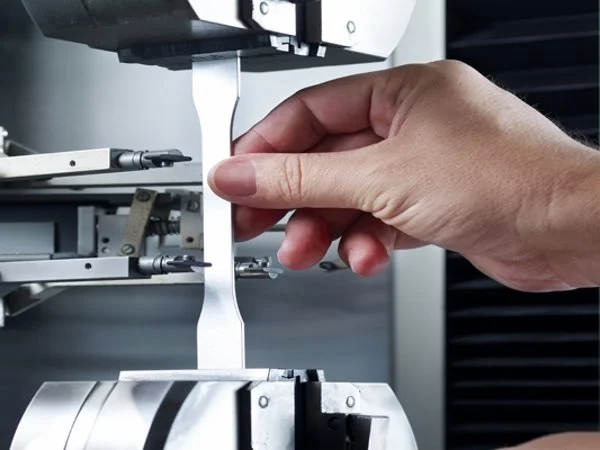GOST 9.308 Accelerated Corrosion Testing
The GOST 9.308 standard is a widely recognized method used in the oil and gas sector for accelerated corrosion testing of metallic and mechanical materials. This standard is particularly important given the harsh environmental conditions that these materials often face, especially in offshore exploration and production environments.
Developed by the Russian State Standardization Committee (Госстандарт), GOST 9.308 provides a framework for simulating corrosive conditions to accelerate the corrosion process on metallic samples. This allows manufacturers and quality managers to identify potential issues early, ensuring that materials used in critical applications meet stringent durability requirements.
The testing procedure involves exposing metal specimens to specific environmental factors such as humidity, temperature fluctuations, and the presence of chloride ions (Cl-). The test setup can be configured to mimic various real-world conditions, including those found in offshore platforms, pipelines, and marine structures. These conditions are designed to replicate exposure over a longer period within a controlled environment.
The testing process typically involves several stages:
- Preparation of the Sample: The material is cut into standard specimens that represent the intended use in the field. This includes considering thickness, shape, and finish.
- Environment Setup: Specimens are placed in a corrosion chamber where they undergo exposure to controlled conditions such as humidity (up to 100%) and temperature fluctuations (-40°C to +85°C).
- Chloride Ion Exposure: The specimens are exposed to chloride ion solutions, which simulate the presence of seawater or brine environments.
- Data Collection: Regular inspections are conducted to observe changes in the surface condition of the materials. This includes measuring weight loss, visual inspection for pitting or erosion, and other relevant parameters.
The GOST 9.308 standard specifies detailed acceptance criteria based on these observations. The primary goal is to identify any signs of corrosion within a predefined accelerated timeframe. This allows for early detection and correction of potential issues before the materials are used in critical applications.
Understanding the context of oil & gas testing, this method is crucial for ensuring that materials can withstand the rigors of offshore environments without degradation. The use of GOST 9.308 ensures compliance with international standards while offering a practical way to test materials under accelerated conditions.
Customer Impact and Satisfaction
- Improved Product Quality: By identifying potential issues early, customers can ensure that their products meet stringent durability requirements.
- Enhanced Reliability: The use of GOST 9.308 helps in selecting materials that are less prone to corrosion, thus increasing the reliability of equipment and structures used in oil & gas operations.
- Economic Benefits: Early identification of material issues can prevent costly repairs or replacements later on, reducing maintenance costs significantly.
Customer satisfaction is directly linked to the accuracy and precision of test results. Our lab ensures that all tests are conducted in accordance with GOST 9.308 standards, providing reliable data that helps customers make informed decisions about material selection and application.
Environmental and Sustainability Contributions
- Promoting Sustainable Practices: By identifying materials that are more resistant to corrosion, we help reduce the environmental impact of oil & gas operations. This includes minimizing waste from premature failures and reducing the need for frequent replacements.
- Energy Efficiency: Materials that can withstand harsher conditions without degradation contribute to energy efficiency by maintaining their performance over longer periods.
The use of GOST 9.308 in accelerated corrosion testing supports broader sustainability goals within the oil & gas sector. It helps in reducing the environmental footprint by ensuring that only the most durable materials are used, thereby extending the lifecycle of equipment and structures.
Use Cases and Application Examples
| Use Case | Description |
|---|---|
| Offshore Platforms | Evaluating the corrosion resistance of materials used in offshore platforms, ensuring they can withstand harsh marine environments. |
| Pipelines | Determining the durability of pipeline components under various corrosive conditions to ensure safe and reliable operation. |
| Marine Structures | Testing materials for use in marine structures, ensuring they can withstand long-term exposure to saltwater and other aggressive environments. |
The application of GOST 9.308 is not limited to these examples but extends across various oil & gas applications where corrosion resistance is critical. This testing method ensures that materials used in these high-stress environments are robust enough to perform reliably over their intended lifecycle.





